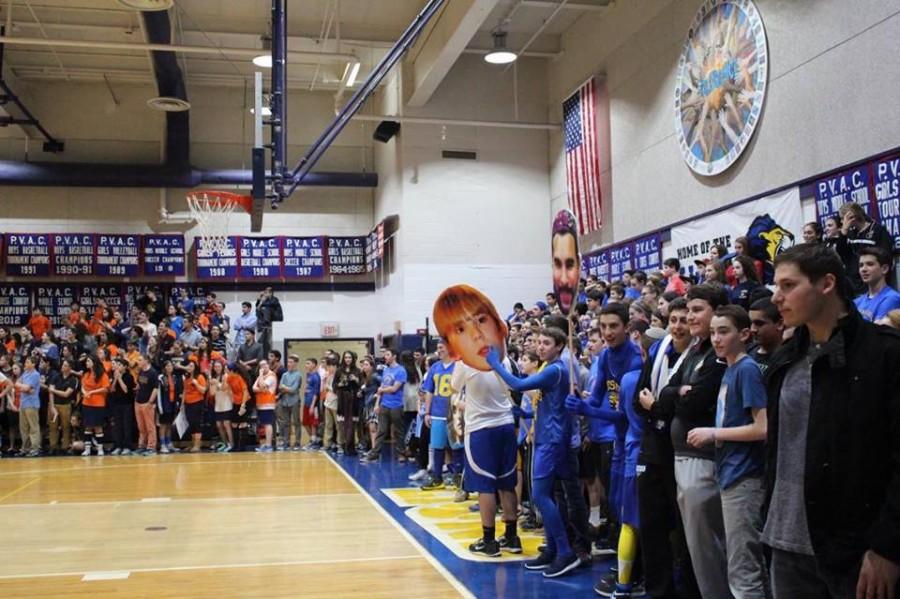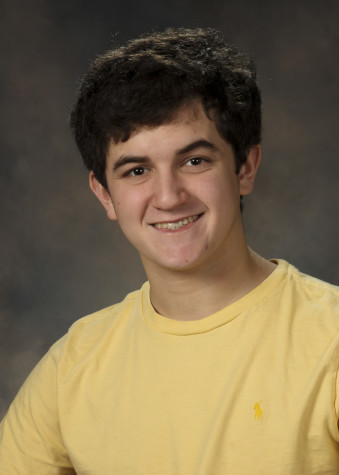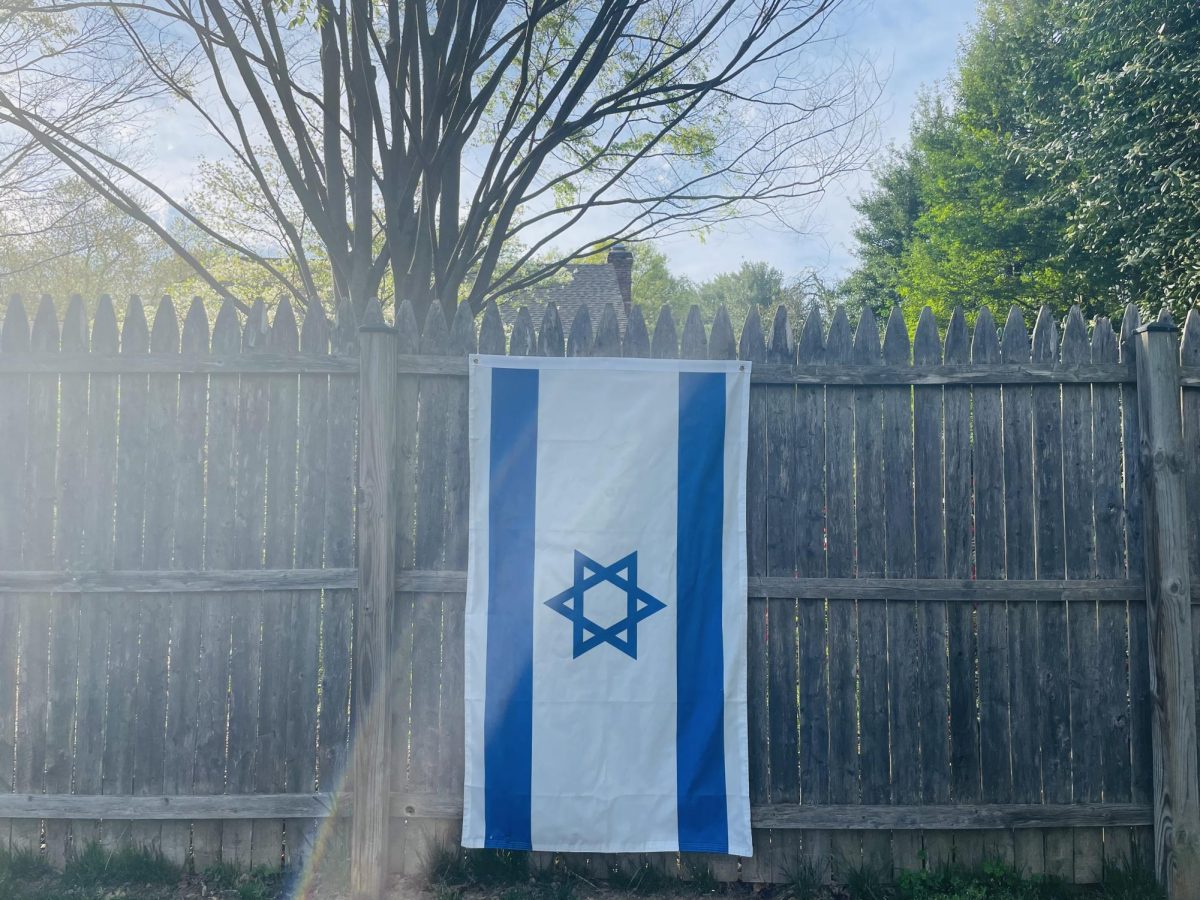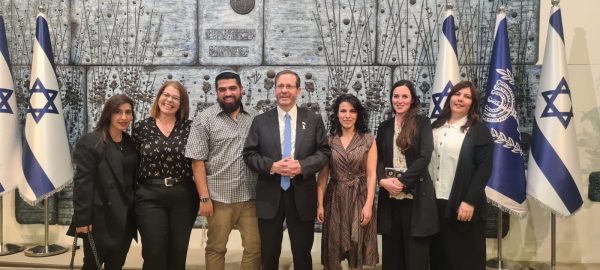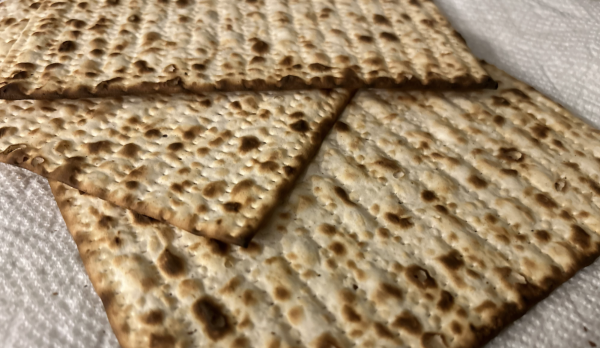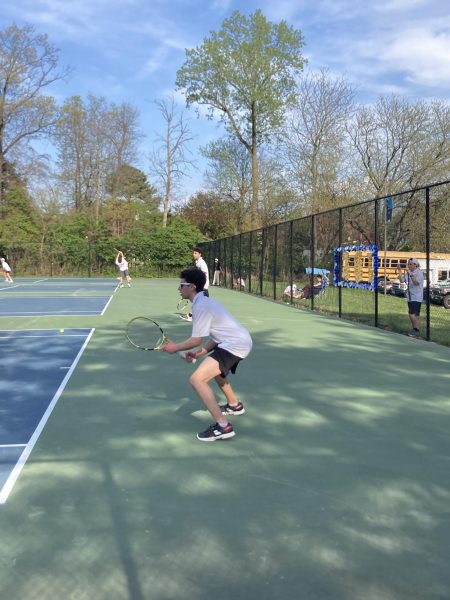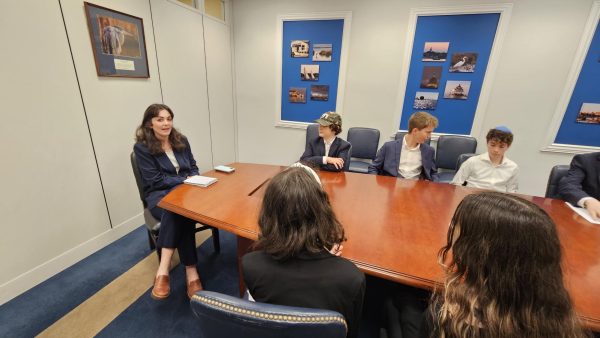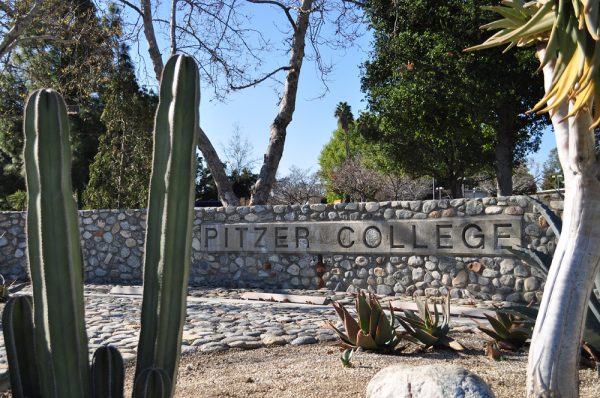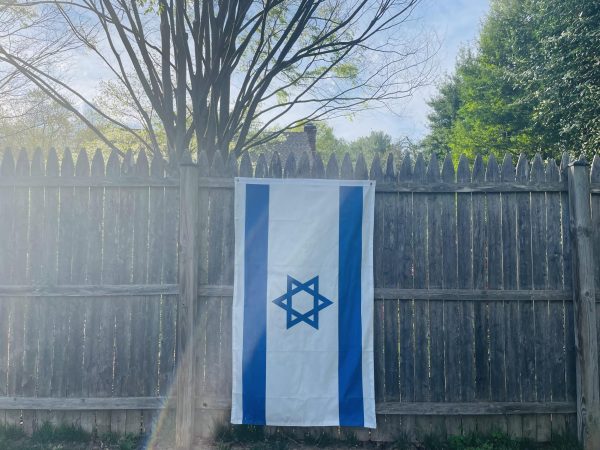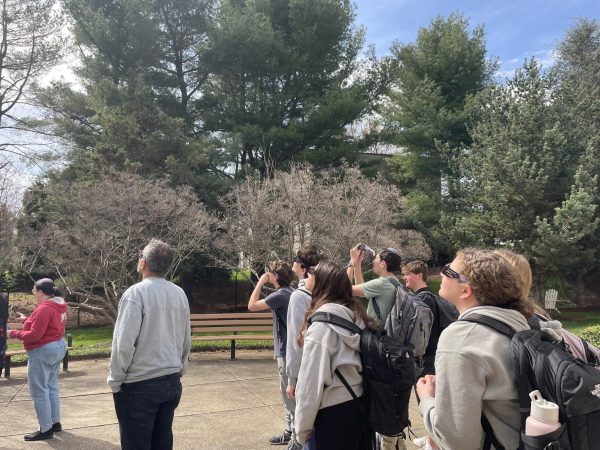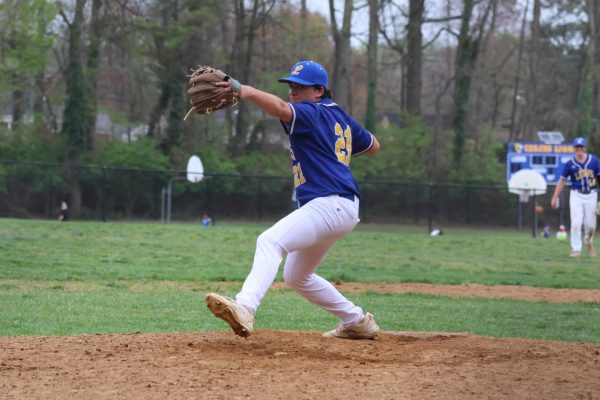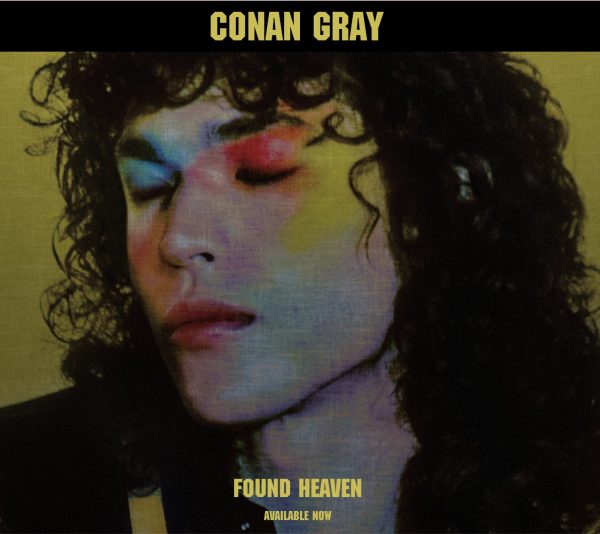A rivalry extending beyond the court
Lions and Cougars face off in roaring rivalry
photo courtesy of Mollie Milchberg
CESJDS and Berman Hebrew Academy students cheer on the sidelines as they watch the varsity basketball games.
February 1, 2016
What began in the early 1980s as a friendly soccer competition has turned into a heated and intense athletic rivalry between the CESJDS Lions and the Berman Hebrew Academy Cougars. With varsity basketball home games for each school drawing crowds of as many as 600 people, watching the Cougars and Lions play has become a yearly highlight for each school. But it was not always this way.
When JDS began its athletic program in 1974, hundreds of paying, screaming fans coming to see two Jewish day schools play a highly competitive varsity basketball game with potential college recruiters in the crowd was likely a far-fetched idea for even the most imaginative of fans. The Lions were just trying to get enough people to maintain a team, and did not even first play Hebrew Academy until 1976.
While there has been large fan support at recent basketball games between the rivals, JDS Dean of Students and Interim High School Principal Roz Landy said the fervor surrounding the games has actually gone down in recent years.
“We have won a majority of the games in recent years, and that may have affected the intensity surrounding the games,” Landy said. “In the ‘90s and early 2000s, every game was a close, back-and-forth game, which got the fan bases into it.”
Senior Tani Makovsky, who went to Hebrew Academy for 11 years before he transferred to JDS last year, feels that the rivalry is still riveting and exciting.
“I have been on both sides and there is still plenty of fanfare surrounding the games,” Makovsky said. “If I had to choose though, I’d say Hebrew Academy has more passion during the games, and a wider fan base. At JDS, the majority of the students at the game seem to be seniors, but for Hebrew Academy it is more of a school-wide event.”
Unlike JDS, Hebrew Academy, which offers pre-K through 12th grades, only has one campus. This likely makes advertising and involving the whole school in games easier.
Makovsky also feels that, from a social perspective, the student bodies of JDS and Hebrew Academy don’t really understand each other.
“There’s definitely a social barrier because of the perceived denominational differences, and there’s a lot of judgments made on this basis,” Makovsky said. “This affects the rivalry, because you see students in the crowds using religious traditions to get in the head of the opposition.”
Makovsky does not see chants like “Where’s your kippah?” and “Hashem likes us better” as inhibiting positive relationships between the two student bodies.
“Once these barriers are knocked down, I’ve seen many friendships that overlap between the schools,” Makovsky said.
Other than the games played between the Cougars and Lions, there is not much going on between the two schools, academically or otherwise. However, Landy said this may soon change. According to Landy, the headmasters of the two schools, Hebrew Academy’s Joshua Levisohn and JDS’ Mitchel Malkus, keep touch with one another and are currently hoping to have their schools coordinate an event together in support of Israel.
“The administrations will talk occasionally, about tickets for the games, for example,” Landy said. “Currently we are working with their Model U.N. team and we are hoping to coordinate an event with them, something that would benefit both schools.”


